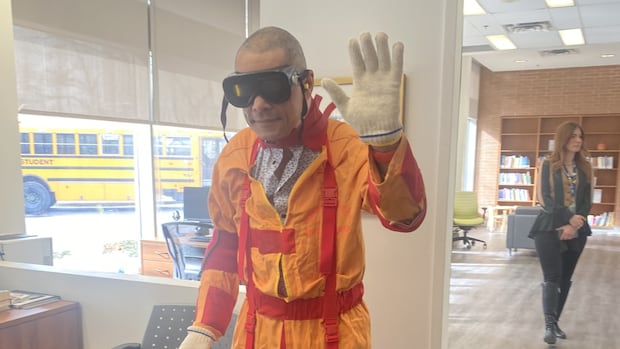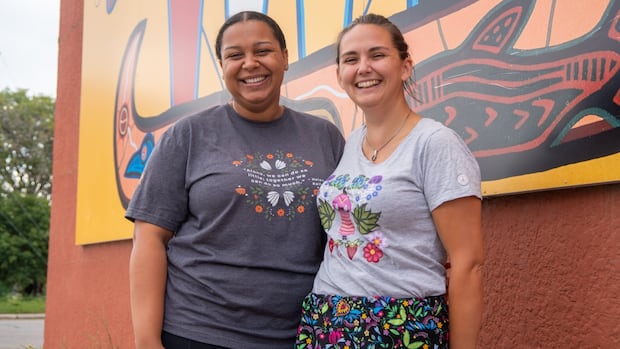The Current24:53Are you an explorer? Alex Hutchinson says we all are
For many, the word “explore” brings to mind daring feats: climbing towering peaks, plunging into ocean depths or soaring through the air on a skydive. But Alex Hutchinson challenges people to redefine exploration — suggesting it’s not just for adrenaline junkies.
“There’s a middle definition where it’s not just about physical exploration — it’s not just about extremes or anything like that,” Hutchinson told The Current‘s Matt Galloway.
Instead, he says exploration is any moment where we step into the unknown, take a risk, or seek growth.
“There has to be some stakes — you’re venturing into the unknown, you’re taking a path where you don’t know how it’s going to turn out — there’s probably going to be struggle along the way.”
Hutchinson is the author of The Explorer’s Gene: Why We Seek Big Challenges, New Flavors, and the Blank Spots on the Map, which explores our innate drive to seek out the unknown.
We’re all meant to explore
Exploration may take different forms for each of us, but it’s something we’re all built for — hardwired into our biology, says Hutchinson.
Our brain’s pleasure system, the former physicist said, is wired not just to reward success, but to light up when something surprises us in a positive way. That surge of dopamine pushes us to keep seeking new and unexpected experiences.
Hutchinson points to a simple example: how children are naturally driven to change things up while playing at the playground. At first, they’re excited to go down the slide, but after a few turns, curiosity kicks in — they start climbing up instead, inventing new and creative ways to play.
“They know that the uncertainty is gone, so that’s why they’re like, ‘OK, now we’re going to go up the slide.'”
Brent Hogarth, a licensed clinical psychologist with expertise in sport and high-performance psychology in B.C., agrees. He says the urge to explore is as fundamental as any basic human need.
“A need just like vitamin C, is the need for exploration and adventure,” he said.
It’s powered by what neuroscientists call the seeking system — a primal drive in the brain that keeps us curious, ambitious and open to possibility.

“When the seeking system gets activated — whether you’re on an adventure, you’re learning, you’re experimenting at work — we get a massive hit of dopamine that is not about reward, but more so, about motivation of wanting to explore more, adventure more, experiment more,” said Hogarth.
Finding balance
Still, knowing when to stretch yourself — and when to step back — is just as important as the act of exploring itself, says Hutchinson.
There’s also value in staying within our comfort zone — in knowing when to explore, and when to “exploit” the knowledge and experience we already have, he says.
Recognizing when to switch between the two is key to avoiding burnout and maximizing growth.
“As you get better at what you’re doing, you have to increase the challenge … [which] leads to growth because you have to keep getting on the edge, keep going for it,” said Hogarth.
That edge doesn’t have to be dramatic. In fact, Hogarth recommends what he calls “front loading” — small, low-stakes acts of courage that prepare us for bigger moments.
Start with something as simple as complimenting a stranger or chatting with the person who makes your coffee, says Hogarth. These minor moments build the confidence and mental habits needed to tackle more intimidating goals, like speaking up in a meeting or taking on a new role.
“When the moment of uncertainty or adventure presents itself, we’ve done the work so that we can go for it,” he said.
Veronica Park, a registered clinical counsellor of B.C., believes in embracing the limits of our abilities without shame.
“We [all] can’t be Einstein,” she said, but added that doesn’t make anyone less valuable, as everyone has their own unique talents and strengths.
“It’s better to stay within that boundary, rather than keep pushing it and feel like I’m exhausting myself.”

That’s the moment, Park says, when you can acknowledge, “Maybe this is the boundary of my potential and gifts, and I learn to take it with humility saying, ‘I am satisfied with what I am.'”
Ultimately, Hutchinson says, exploration isn’t about perfection — because by nature, it’s uncertain.
He says what matters most is not guaranteed success, but choosing the path with the greatest potential.
“What you want to do is make choices such that when you’re looking back, even if it went wrong, you will not regret it,” he said.
“So, you take a chance, you look at what has the biggest possible upside, what has the best realistic outcome, and you say, ‘Let’s try that, and even if it doesn’t work, at least I won’t regret trying.'”






